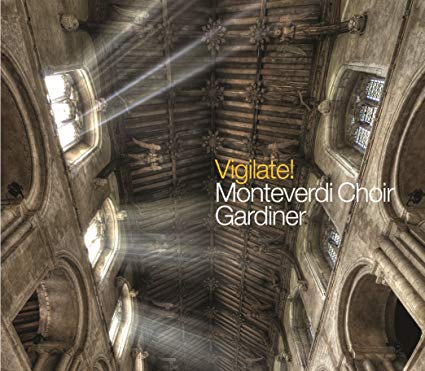Music |
Vigilate! English polyphony in dangerous times
The Monteverdi Choir
By
Published: Mar 05, 2019
Category:
Classical
To “vigilate” is to monitor, watch over, or control.
And that’s exactly what Catholic composers had to do in England during the reign of Elizabeth I. As you recall, she succeeded her sister, Queen Mary I, a passionate Catholic who persecuted Protestants — like: burning them alive. Elizabeth, a Protestant, established Protestantism as the official religion, but she was more tolerant than her sister: Catholics could observe their faith as long as they presented no threat to her rule. Not all Catholics got the memo — there were plots against Elizabeth. And Mary Queen of Scots was executed.
Elizabeth had two resident Catholic composers in the Chapel Royal: William Byrd and Thomas Tallis. She admired their talent and liked them — as long as they didn’t openly practice their religion. And, of course, as long as their music could be played in the Church of England.
“Vigilate” is a collection of English Renaissance vocal church music — that is, all voices, mostly singing in Latin, no instruments. Think of this as “underground” music: Catholic composers responding to political and religious pressure by not telegraphing their beliefs. They’re often described as “recusants,” secret Catholics.
This CD marks the 50th anniversary of John Eliot Gardiner’s Monteverdi Choir. It’s an unusual choice for a commemoration. But understandable for Gardiner — although the composers are exalted and these are important compositions, they’re not generally grouped together. Here, they make a powerful, moving hour of music. [To buy the CD from Amazon, click here.]
Consider the gorgeous “Almighty God, the fountain of all wisdom,” by Thomas Tomkins, who was, for an astonishing 60 years, organist of Worcester Cathedral.
“Ecce, vicit leo,” by Peter Phillips, is considerably more exuberant.
Thomas Tallis — I’ve written about him here and here — is represented by “Suscipe quaeso Domine.”
One more: “Christe Qui Lux es et Dies,” by William Byrd.
As background music while you work, this music generates calm. At night, in the darkness, it’s transporting.


